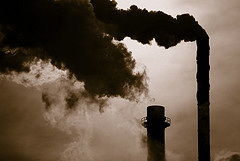- 3 reads

Recent studies have determined that the state of Maine has been one of the worst contributors to global warming—not just nationally, but globally. Data taken from 1960 to 2005 indicate that Maine topped 114 of 184 countries in greenhouse gas production. International environmental group Greenpeace concluded that although Maine ranked just 30th among U.S. states in global warming emissions, its pollution per person exceeds most of the rest of the world, including China.
So far there have been some noticeable changes to Maine’s climate. Most cities’ temperatures are about 1 degree above average, and the average temperature in Lewiston, Maine, has increased 3.4 degrees. Most of the state has experienced a 20% decrease in precipitation. On the coast, Rockville saw a four inch rise in sea level during the last century and might experience a rise in fourteen more by the end of this century. Global warming could mean earlier spring melts which would raise inland water levels earlier and cause floods. Maine’s ecosystem sits at a fragile latitude, as many trees are already at their southern limits. Global warming could destroy 40 percent of forests in some areas, and could diminish the presence of fish and other wildlife. Furthermore, warmer temperatures could increase the presence of Lyme disease as well as create algae blooms and red tides that would harm the fishing industry.
Maine’s high emission rates contribute greatly to the U.S.’s elevated global rates, and many blame the federal government for not stepping in earlier. Maine has taken some steps to reduce its footprint, such as drafting the State of Maine Climate Change Action Plan and working with the Sierra Club to boost vehicle mile per gallon standards and introduce cleaner cars. Still, it is unknown whether these changes are being introduced too late. You may soon be able to catch a Maine lobster from the sea that is already boiled.

